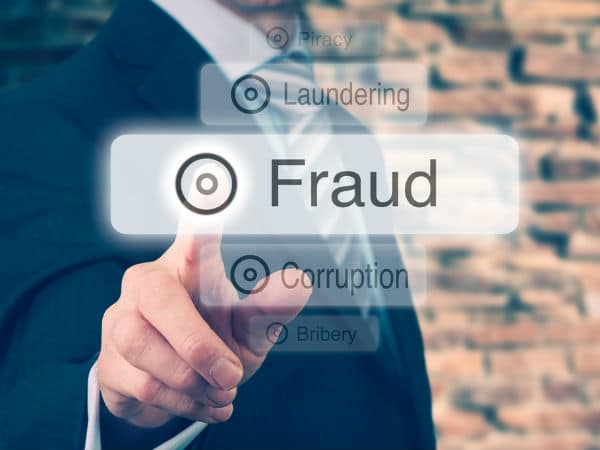Insurance Fraud: Yoisler Herrera-Enriquez Pled Guilty For Defrauded Automobile Insurance Companies
Wyoming Man Fifth Person To Plead Guilty To Staged Automobile Accident Fraud The Fraud Ring Operated Three Therapy Clinics…

Wyoming Man Fifth Person To Plead Guilty To Staged Automobile Accident Fraud The Fraud Ring Operated Three Therapy Clinics…

Long-time Manager of Hoquiam Wood Shavings Business Sentenced to Prison for Mail Fraud, Tax Evasion, Money Laundering and Interstate…

Defendant Was the Principal Organizer of Cybercrimes That Netted More Than $55 Million in Proceeds for the Members of…

Donnie Marks Sentenced for Role in Fortune Telling Scheme Donnie and Sandra Marks Ran ‘Readings By Catherine’ in Charlottesville…

Leawood Attorney Pleads Guilty to Fraud Conspiracy Law Partner Sentenced for $1.2 Million Fraud Scheme KANSAS CITY, Mo. –…

Former Business Professor Sentenced to Prison for Hiding over $220 Million in Offshore Banks ALEXANDRIA, Va. – Dan Horsky,…

Healthcare Service Provider to Pay $60 Million to Settle Medicare and Medicaid False Claims Act Allegations A major U.S….
Fullerton Man Pleads Guilty to Filing False Federal Income Tax Returns in $1.1 Million Fraudulent Refund Scheme LOS ANGELES…

Oklahoma City Woman Pleads Guilty to Committing Health Care Fraud and Food Stamp Fraud Oklahoma City, Oklahoma – SHALONDA…

Leader of The Simple City Criminal Organization Sentenced to Over 10 Years in Federal Prison for a Racketeering Conspiracy…

Seven Sentenced in $6 Million Health Care Fraud Scheme HOUSTON – The final seven of eight convicted in a…

Eight people sentenced to prison for penny-stock fraud that resulted in $39 million loss to investors Eight people were…

Gerard Terry, Former Chairman Of The North Hempstead Democratic Party And Nassau County Board Of Elections Official, Indicted For…

Ohio Doctor Pleads Guilty to Running South Side Medical Center as Drug Premises and Evading More Than $3.5 Million…

Three New Yorkers Sentenced For Credit Card Scam The United States Attorney for the District of Vermont announced that…

Former Pepperell Man Who Fled to Canada on Snowmobile Pleads Guilty to Bankruptcy Fraud BOSTON – A former Pepperell…

Two Individuals Arrested And Charged In Manhattan Federal Court With Securities And Wire Fraud For Participating In A Multimillion-Dollar…

Former Paramedic Charged in 37-Count Indictment With Wire Fraud, Making False Statements and Identity Theft Regarding the Theft of…

Two Indicted in Sweeping Mortgage Fraud Investigations PROVIDENCE, R.I. – A 14-count federal indictment filed in U.S. District Court…

Fmr. RI House Finance Chairman to Plead Guilty to Fraud, Aggravated Identity Theft, Tax Charges PROVIDENCE – According to…